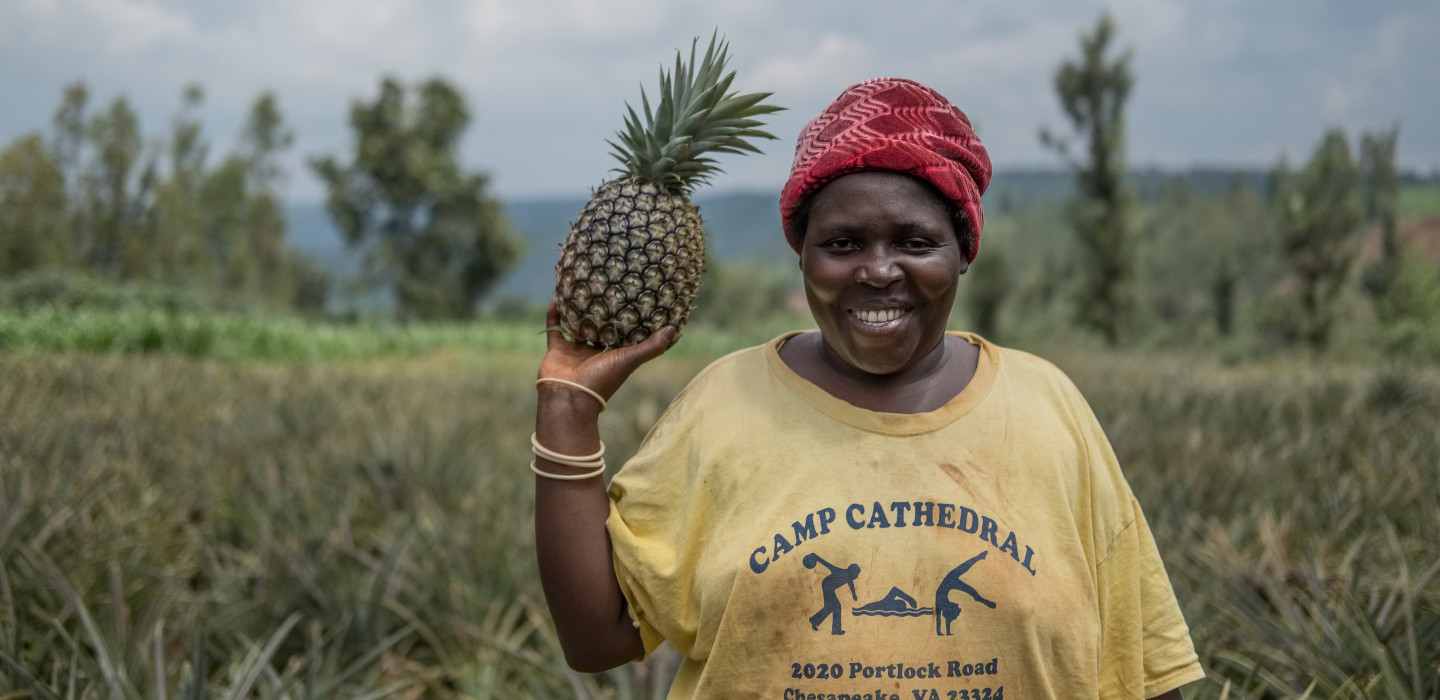Annual Report 2019 reaffirms the importance of IFAD’s investments in challenging times
IFAD Asset Request Portlet
Asset Publisher
Annual Report 2019 reaffirms the importance of IFAD’s investments in challenging times
Estimated reading time: 3 minutes
In 2020, the world is seeing once again that when crisis strikes, it is the poorest and most vulnerable people who suffer the most. When economies go into recession, those working in informal employment or in otherwise precarious jobs – many of which are in rural areas and involve the agricultural sector – tend to be hit hardest. And people living in countries that lack the resources to deal with crises are especially vulnerable.
We remain deeply concerned about the impact of the COVID-19 pandemic on rural people, especially its socio-economic consequences, which are threatening development gains made in past years. However, we have recently seen evidence that suggests our previous investments have helped many people deal with shocks such as the pandemic. For example, in Sierra Leone, a network of rural financial services set up under an IFAD-supported project helped keep the rural economy functioning during the 2014 and 2015 Ebola pandemic and is now playing a similar role in the present crisis. In total, between 2016 and 2018, IFAD’s investments improved the resilience of 26 million rural people worldwide.
This and other information has just been published in our Annual Report 2019. This collection of stories from the men and women we serve, along with the facts and figures we regularly share with our Member States and partners, gives us an opportunity to report on our work during 2019 and reflect on the challenges still facing rural people today – especially in the context of the current pandemic.
2019 was a pivotal year for IFAD. Approvals for projects and programmes increased to a record US$1.67 billion, enabling us to reach even more rural people than before.
To step up our efforts to empower rural people through our operations, we gave precedence to initiatives that support our priority themes – climate change and environment, gender equality, youth, and nutrition. We developed many new tools and approaches during 2019, including a new Rural Youth Action Plan. This Plan sets out a framework for youth-sensitive investment throughout IFAD-supported projects, meaning that creating opportunities for young people is systematically prioritized throughout our work. We also revised our targeting guidelines, adapted our Household Methodologies to integrate issues relevant to youth, nutrition, and the environment and climate change, and improved our Social, Environmental and Climate Assessment Procedures.
The progress we made in 2019 builds on recent internal reforms aimed at maximizing our contribution to ending poverty and hunger. Throughout the year, we continued to pursue decentralization, and to move beyond single-project interventions to more holistic approaches to address systemic issues for the populations we serve. We took steps to strengthen key areas in preparation for IFAD’s Twelfth Replenishment. We are also continuing to develop a financial framework that blends replenishment contributions with debt financing. While replenishment contributions will remain the bedrock of IFAD’s financial model, the new framework will allow us to expand our programme of loans and grants and reach more rural people around the world.
At the same time, we are strengthening our financial risk framework to ensure the financial sustainability of the new model. Among other measures, we established a robust Capital Adequacy Policy that mitigates the financial risks of borrowing.
We also took steps to attract much-needed investment into rural areas. 2019 saw the approval of our Private Sector Engagement Strategy, which will enable us to reach out to private sector partners who are in a position to invest in rural areas. Another initiative, the Agri-Business Capital Fund, was launched at IFAD’s Governing Council 2019. This fund is aimed at assembling investment in rural areas, with a particular focus on job creation for young people. It is the work of a collaborative effort between IFAD, the European Union, the African, Caribbean and Pacific Group of States, the Alliance for a Green Revolution in Africa, and the Government of Luxembourg.
There were many other significant areas of internal reform and progress in 2019. Among other efforts, we strengthened our quality assurance processes, developed our staff’s skills and capacities to adapt to the decentralized work model, and created the Change, Delivery and Innovation Unit to promote an efficient and positive working environment.
As we move ahead to IFAD12, we are acutely aware that the world has changed profoundly. The COVID-19 pandemic calls for targeted investments to prevent the health crisis from becoming a food and poverty crisis. At the same time, our mandate has proven to be highly relevant in a rapidly changing world. The key steps we took in 2019 ensure that we are in a solid position to drive recovery efforts in rural economies in a post-COVID-19 world, in addition to being able to step in to address the short-term impacts of the crisis.
Read more about our investments, how we are adapting to deal with global challenges, and about the stories of the rural people we serve in our Annual Report 2019.
Publication date: 20 July 2020